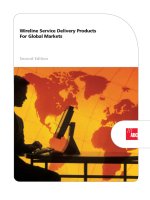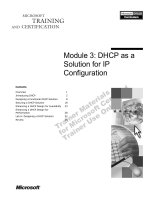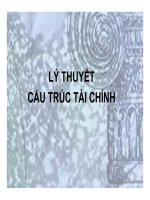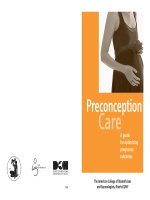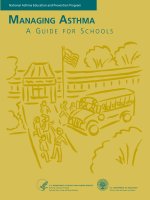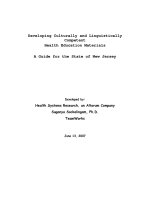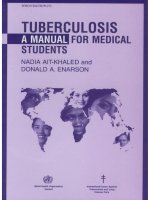A Quest for Global Peace ppt
Bạn đang xem bản rút gọn của tài liệu. Xem và tải ngay bản đầy đủ của tài liệu tại đây (5.7 MB, 175 trang )
A Quest for Global Peace
global peace-01 pre.fm Page i Friday, August 18, 2006 5:05 PM
global peace-01 pre.fm Page ii Friday, August 18, 2006 5:05 PM
A QUEST FOR
GLOBAL PEACE
ROTBLAT AND IKEDA ON WAR, ETHICS,
AND THE NUCLEAR THREAT
Joseph Rotblat and
Daisaku Ikeda
global peace-01 pre.fm Page iii Friday, August 18, 2006 5:05 PM
Published in 2007 by I.B.Tauris & Co Ltd
6 Salem Road, London W2 4BU
175 Fifth Avenue, New York NY 10010
www.ibtauris.com
In the United States of America and Canada
distributed by Palgrave Macmillan a division of St Martin’s Press
175 Fifth Avenue, New York NY 10010
Copyright © Joseph Rotblat and Daisaku Ikeda, 2007
English translation copyright © British Pugwash Trust and Soka Gakkai, 2007
The right of Joseph Rotblat and Daisaku Ikeda to be identified as the authors of this
work has been asserted by the authors in accordance with the Copyright, Designs and
Patent Act 1988.
All rights reserved. Except for brief quotations in a review, this book, or any part
thereof, may not be reproduced, stored in or introduced into a retrieval system, or
transmitted, in any form or by any means, electronic, mechanical, photocopying,
recording or otherwise, without the prior written permission of the publisher.
Hbk ISBN: 978 1 84511 278 3
Pbk ISBN: 978 1 84511 279 0
A full CIP record for this book is available from the British Library
A full CIP record is available from the Library of Congress
Library of Congress Catalog Card Number: available
Typeset in Palatino by JCS Publishing Services
Printed and bound in Great Britain by TJ International, Padstow, Cornwall
global peace-01 pre.fm Page iv Friday, August 18, 2006 5:05 PM
Contents
List of Illustrations vi
Foreword Professor Robert Hinde, University of Cambridge, Chairman
British Pugwash Trust vii
Preface Joseph Rotblat ix
Preface Daisaku Ikeda xiii
1 One World, One Table, One Will to Unring the Nuclear Bell:
Pugwash 1
2 Hiroshima and Nagasaki: From Japan's Ground Zero to the
Worl d 15
3 Living History: To Survive, to Study when the World is at War 27
4 The Conscience of a Nuclear Physicist: Quitting the Manhattan
Project 39
5 The Power of a Name: The Russell–Einstein Manifesto 51
6 From Hiroshima to Norway: Pugwash Wins the Nobel Prize 63
7 The Lie of Deterrence, the Vision of Abolition 73
8 Science and Faith: The Extension of Reason 87
9 Loyalty to Humanity: Competition with a Human Face 99
10 Toward a World Without War: The United Nations and We
the People 111
Appendix 1: Declaration Against Nuclear Weapons by Josei Toda,
second president of Soka Gakkai 123
Appendix 2: The Russell-Einstein Manifesto 125
Appendix 3: The Nobel Lecture given by Joseph Rotblat 129
Glossary 137
Notes 147
Index 151
global peace-01 pre.fm Page v Friday, August 18, 2006 5:05 PM
List of Illustrations
1 The participants at the first Pugwash Conference, 1957 5
2 Mr. Tsunesaburo Makiguchi and Mr. Josei Toda, 1930 21
3 The Russell–Einstein Manifesto is announced, 1955 52
4 “Nuclear Arms: Threat to Our World” exhibit by Soka Gakkai,
1996 85
5 Professor Joseph Rotblat lectures at Soka University of America,
2001 101
6 Professor Arnold Toynbee and Mr. Daisaku Ikeda in London,
1972 118
global peace-01 pre.fm Page vi Friday, August 18, 2006 5:05 PM
Foreword
by Robert Hinde
Joseph Rotblat and Daisaku Ikeda are not only great thinkers: they have
spent their lives working for a peaceful world, a world in which all individ-
uals would realize their full potential for the common good of humankind.
This discourse between them is deeply moving and will be an inspiration to
many.
Daisaku Ikeda is president of Soka Gakkai International, a non-
governmental organization cooperating with the United Nations and dedi-
cated to the realization of the universal values of human dignity and peace.
As a Buddhist, Ikeda believes that all individuals possess the ability to create
limitless value in harmony with others. Ikeda has devoted his life to the
development of Soka Gakkai, and to the realization of a world in which the
dignity and fundamental rights of all people are respected. He has founded
numerous educational, peace and cultural institutions in many countries
while maintaining an impressive literary output.
Joseph Rotblat, a scientist who believes in science as the way to solve
humankind’s problems, sees a role for religion, but is himself an agnostic.
He helped to make the first atomic weapons because he believed that their
possession by the Allies would prevent their use by either side, and was the
only scientist to leave the project as a matter of conscience as soon as it
became apparent that the Germans had abandoned their own attempts to
make one. Horrified when he heard that atomic bombs had not only been
used, but used against densely populated cities, Rotblat devoted his life to
the abolition of nuclear weapons and to research in radiation medicine.
Inevitably, both men focus on the need to abolish war, and are convinced
that that is a real possibility. Both see education as an essential tool in
achieving that goal.
Among Ikeda’s numerous awards is the United Nations Peace Award.
Rotblat has been the driving force in the Pugwash Conferences on Science
and World Affairs. Pugwash is an organization which, operating out of the
public eye, persuaded governments not to use nuclear weapons during the
global peace-02 frwd.fm Page vii Friday, August 18, 2006 5:05 PM
VIII A QUEST FOR GLOBAL PEACE
Cold War and has continued to work for peace since the Cold War ended.
Rotblat shared the Nobel Peace Prize with the Pugwash organization in
1995.
One wonders whether the ability of these two men to put ideals into
practice sprang from the terrible circumstances they experienced in their
youths. Rotblat nearly starved in Warsaw in Word War I; Ikeda experienced
Japan’s devastation in World War II. Or does it come from the influence of
inspiring mentors in their late teens? In Rotblat’s case this was Dr. Werten-
stein, the Director of the Warsaw Radiological Laboratory, whom he saw as
not only a first-rate scientist but also as a dedicated humanist who imparted
the importance of ethical values; for Ikeda it was Josei Toda, the second
president of Soka Gakkai, who published his Declaration Against Nuclear
Weapons in the same year as the first Pugwash Conference.
It is highly significant that, though a generation apart, from different cul-
tures and with differing philosophical orientations, they should agree so
closely in so many ways, and especially in their emphasis on the need for
basic human values. Central to their discussions, which include much mate-
rial on the Manhattan Project and on the history of the Pugwash
organization, is the need to create a peaceful world, a world in which all
individuals could live in mutual understanding. Both seek some form of
world governance in which local cultures will maintain their integrity, but
cultural, ethnic and religious differences will not be a barrier to cooperation
and friendship. Neither sees this as happening in the immediate future, and
they emphasize the necessity to help the youth of today to find their proper
role in life. In this, education must play a crucial role—not just the acquisi-
tion of facts, but education leading to learning and wisdom. Both agree on
the importance of supporting the United Nations and respect for interna-
tional law. Rotblat sees the future in the proper use of science, Ikeda in
Buddhist philosophy and discourse, but this does not hinder a deep under-
standing between them, an understanding that arose from their common
values and led to a close friendship.
Thus I am convinced that members of my generation, who experienced
war, will find this book as moving as I did and, more importantly, that it
will be an inspiration to all ages to do their utmost to serve humanity.
Robert Hinde
global peace-02 frwd.fm Page viii Friday, August 18, 2006 5:05 PM
Preface
by Joseph Rotblat
The world today is different from the world into which I was born. In my
opinion, the dominating factor contributing to change has been science. I
was five years old when World War I broke out. Because my formative years
were spent in poverty and suffering, I developed a tremendous passion for
science as the means to alleviate the miseries of life that I experienced every
day: hunger, disease, squalor, ignorance and cruelty. Science was the dream
that sustained me in those terrible years.
Now, looking back at this childhood dream, I am glad to note that much
of it has come true. Infectious diseases that killed so many infants and chil-
dren are things of the past. Improved techniques in agriculture have made it
possible, in theory at least, to feed the world’s population. Moreover, new
technologies in factories and mines have removed much of the drudgery
and have increased safety standards. Technologies also have made obtaining
food, clothing and shelter less of a daily chore. Progress in communication
and information has given more people access to cultural achievements.
Altogether, people are nowadays more healthy, more affluent, better edu-
cated and informed—thanks to science—and thus better equipped to live in
peace with each other. Sadly, I also must note some negative consequences
of the applications of science.
Firstly, the benefits of science are not enjoyed by all people to the same
degree. Gaps have widened between industrialized and developing nations,
and between the upper and lower strata within nations. Furthermore, to
the better-off nations and the affluent strata within nations—not satisfied
with their high standards of living—affluence has brought excessive con-
sumption of energy and squandering of natural resources. Excesses are
leading to a catastrophic degradation of the environment. Above all, the
application of science and technology to the development and production
of weapons of mass destruction has created a real threat to the continued
existence of the human race.
global peace-03 pref1.fm Page ix Friday, August 18, 2006 5:06 PM
X A QUEST FOR GLOBAL PEACE
To a very large extent, threats to the environment and to humanity’s con-
tinued existence were due to the work of scientists. Particularly in the case
of weapons, they did this not because of any credible requirement for
defense. This excess, simply to satisfy inflated egos or to experience the
intense exhilaration in exploring new scientific concepts, is an example of
the prostitution of science. It is a terrible but justified indictment of mem-
bers of a highly respected group in society.
That human society is capable of being led to the folly of its own destruc-
tion is exemplified by another gruesome deed of the twentieth century: the
Holocaust. This genocide was executed with scientific precision, using a
chemical invented by a scientist, and perpetrated by one of the most civi-
lized of nations. Weapons of mass destruction and genocide demonstrate
the lunacy to which our minds can descend, the depravity to which society
can sink. What is so worrying is that such evils are still with us.
Despite the horrible chapters in human history, I still believe in the inher-
ent goodness of humankind. This has been my basic philosophy since my
youth, and all the events that I have mentioned—including personal trag-
edy—have not shaken this belief.
There are signs that we are learning from history and moving toward a
war-free world. For example, France and Germany used to be mortal ene-
mies, as were other members of the European Union. There are still
disputes, but the members of the European Union have learned to solve
their problems by peaceful means. The same is taking place on other conti-
nents. Slowly and painfully we are appreciating the folly of war and
learning to talk to each other.
All the same, for the concept of a war-free world to become universally
accepted, a process of education is required. We have to eradicate a culture
that accepts war. We have to change the mind-set that seeks security for
one’s own nation in terms that spell insecurity to other people’s nations.
Education will require efforts in two directions: a new approach to security
in terms of global security, and nurturing a new loyalty—loyalty to
humanity.
Global security requires, first, the reduction of major risks to humanity
by the elimination of weapons of mass destruction. It is important to make
the ban universal. We must not gloss over the hypocrisy that allows some
nations to modernize nuclear weapons and ensconce them in their military
doctrines while urging abstinence on everyone else. We must resolve that
any use of these weapons would be a crime against humanity, excoriated by
a shared morality.
global peace-03 pref1.fm Page x Friday, August 18, 2006 5:06 PM
PREFACE BY JOSEPH ROTBLAT XI
We live in a world community of ever-greater interdependence due
largely to technical advances arising from scientific research. We all owe an
obligation to society, but the responsibility weighs heavily on scientists
because of the dominant role played by science in modern society. Science
must regain the respect of the community for its integrity. It must recapture
public trust in its pronouncements. Scientists must reveal a human face and
show that it is possible to combine creativity with compassion and to allow
the imagination to roam while remaining accountable for their deeds.
An ethical code of conduct for physicians has been in existence for nearly
two and a half millennia, since the days of Hippocrates. The Hippocratic
Oath taken by doctors became essential when the life of a patient was liter-
ally in the hands of the doctor. Nowadays, scientists have acquired a
somewhat similar role in relation to humanity. One such pledge, the one
adopted by Pugwash students, reads as follows:
I promise to work for a better world, where science and technology are used
in responsible ways. I will not use my education for any purpose intended to
harm human beings or the environment. Throughout my career, I will con-
sider the ethical implications of my work before I take any action. While the
demands placed upon me may be great, I sign this declaration because I rec-
ognize that individual responsibility is the first step on the path to peace.
I am in my ninety-seventh year, and have worked for the abolition of
nuclear weapons, and ultimately of war itself, for most of my life. Fifty
years ago, I joined Albert Einstein, Bertrand Russell and eight other scien-
tists in signing a manifesto warning of the dire consequences of nuclear
war. This statement, the Russell–Einstein Manifesto, was Einstein’s final
public act. Now I am the only remaining signatory. Because of this, I feel it
is my duty to carry the message forward. What Einstein and his contemp-
oraries wrote fifty years ago—“We have to learn to think in a new way”—is
as relevant today as it was then.
When I signed the Manifesto, I was the youngest signatory. This dia-
logue, A Quest for Global Peace, written in partnership with a man younger
than I, addresses the same dilemma. Can we remember our shared human-
ity and forget our differences? Can we master the necessary arts of global
security and loyalty to the human race? Together with Daisaku Ikeda, I use
this forum as a means to bequeath my experiences and my convictions
about the moral and responsible uses of science to the next generation.
Joseph Rotblat
London
global peace-03 pref1.fm Page xi Friday, August 18, 2006 5:06 PM
global peace-03 pref1.fm Page xii Friday, August 18, 2006 5:06 PM
Preface
by Daisaku Ikeda
War turns people into mindless beasts … People who detest barbarism start
to act in barbaric ways. This is the insanity of war!
These were the unforgettable words spoken to me by Professor Joseph
Rotblat, the distinguished scientist and peace activist. The occasion was our
first meeting, in Osaka in 1989. As he spoke, his expression, usually mild as
a spring breeze, took on a look of undisguised anger.
The Holocaust carried out by the Nazi regime brought him tragedy, tak-
ing his beloved wife from him. And though he resigned from the
Manhattan Project while it was midway in its work of developing the
atomic bomb, he was left with feelings of shame because he had partici-
pated in the production of the bomb. World War II inflicted wounds on his
keen mind and spirit that could never be healed, and it marked the time
from which his true struggle as a human being began.
He began his search for a kind of science that would not inflict destruc-
tion and slaughter but would contribute to human happiness. He became
involved in researching for a cure for cancer, and at the same time he
devoted himself to the movement for world peace. He worked to convert
the greatest miseries of war into the most intense determination for peace,
channeling all his energies into the movement to abolish nuclear weapons.
In 1957, the Pugwash Conferences, an international organization of sci-
entists dedicated to the abolition of nuclear weapons, was founded, and
with that as his springboard, Professor Rotblat devoted the remainder of
his life to the cause of peace. Meanwhile, in the same year, 1957, in Japan
my mentor, Mr. Josei Toda, the second president of the Soka Gakkai,
declaring that nuclear weapons constituted “an absolute evil”, called upon
young people to work for their abolition. Though the two men never met,
they were in perfect agreement in insisting that barren rivalries of political
ideology be transcended and that the existence of nuclear weapons be out-
lawed.
global peace-03 pref2.fm Page xiii Friday, August 18, 2006 5:06 PM
XIV A QUEST FOR GLOBAL PEACE
In part, no doubt, because of this historical coincidence, Professor Rot-
blat responded warmly to SGI’s (Soka Gakkai International’s) popular-
based peace movement and expressed his concurrence. As he himself said,
“We share a common goal with you. The struggle for peace will no doubt
take a lot of fighting, but from now on I hope we can work together to
carry that fight forward.”
In 1995 Professor Rotblat received the Nobel Peace Prize, and in the
years following it seemed that he was busier than ever in his efforts for
peace. I have no doubt that he was spurred to even greater activity by his
sense of mission and responsibility because of the fact that, among those
who signed the momentous Russell–Einstein Manifesto of 1955, he was
the last surviving member.
When Professor Rotblat and I met a second time, in Okinawa in 2000, I
could see that he was working harder than ever to achieve his goal. “I can’t
afford to be tired!” he remarked when I asked how he was bearing up. Pro-
fessor Rotblat and I began exchanging letters when he expressed a strong
desire to appeal to the young people of the next generation to carry on the
ideals of the Russell–Einstein Manifesto. How the torch of peace could best
be transmitted to the younger generation was one of the deepest concerns
of his later years, and he became increasingly concerned with educating the
young in this respect.
In this connection he kindly agreed to visit Soka University of America,
which I founded in California, and to deliver a lecture there. It was in
October of 2001, when America was still in turmoil from the 9/11 terrorist
attacks. Professor Rotblat, fatigued by the long journey from his home in
London, was in a state of exhaustion, and in the car carrying him from the
airport to the campus, took doses of medication that he had brought with
him. He was ninety-two at the time, but the fervent words he spoke in the
lecture, straining his voice, deeply impressed the hearts and minds of the
students with his personal manifesto of “the spirit of peace”.
The book presented here is entitled A Quest for Global Peace. The title is
intended as a tribute to Professor Rotblat’s ardent battle for the realization
of his ideals, and it sums up the theme of the lecture he gave at Soka Uni-
versity of America. Through the medium of these discussions with me, he
said that he hoped to give full expression to his thoughts on the subject of
peace and was untiring in his efforts to bring them to publishable form.
It was the first week of August of 2005 when we completed the final
editing of our discussions—just sixty years from the event that marked the
beginning of Professor Rotblat’s efforts for peace, the dropping of atomic
global peace-03 pref2.fm Page xiv Friday, August 18, 2006 5:06 PM
PREFACE BY DAISAKU IKEDA XV
bombs on Hiroshima and Nagasaki. Not long after, Professor Rotblat’s
journey came to an end; he died peacefully in London on August 31 at the
age of ninety-six. His life spanned a century of dramatic change and consti-
tuted a powerful drama of victory achieved.
Six years ago in Osaka, where we had had our first memorable encoun-
ter, I arranged to have two cherry trees planted in honor of Professor
Rotblat and his wife. Viewing the trees this spring, I found them in full
bloom, with a pink that called to mind the healthy glow of Professor Rot-
blat’s cheeks.
The death of my mentor, Mr. Toda, took place at a similar time, in April
when the cherries were at their best. I recall how he once said to me, speak-
ing in a voice charged with emotion,
War can never be done away with simply by modifying the social system or
changing the structure of the nation. Only a change in the fundamental
nature of the human being will do that. The people as a whole must become
stronger. The people must become wiser. The people of the world must join
together heart to heart - there is no other way!
These words of his echo the message that runs throughout the Russell–Ein-
stein Manifesto, the injunction “Remember your humanity!” Next year will
mark the fiftieth anniversary of the founding of the Pugwash Conferences
and the issuance of Mr. Toda’s Declaration Against Nuclear Weapons. It
seems highly fitting, therefore, that this compilation of dialogues between
Professor Rotblat and myself should appear in print on the eve of that anni-
versary. It constitutes, in effect, a posthumous work by Professor Rotblat,
and because of its importance, is appearing simultaneously in both a Japa-
nese and an English version.
My enduring hope is that the young people of today will be inspired by
this book and by the example of Professor Rotblat’s lifetime of devotion to
come forward one after another and join in the unprecedented challenge
which they present, namely, the creation of a world free of nuclear weapons
and of war.
Daisaku Ikeda
President, Soka Gakkai International
global peace-03 pref2.fm Page xv Friday, August 18, 2006 5:06 PM
global peace-03 pref2.fm Page xvi Friday, August 18, 2006 5:06 PM
CHAPTER 1
One World, One Table,
One Will to Unring the Nuclear Bell:
Pugwash
Ikeda: Professor Rotblat, I have had the opportunity to engage in dia-
logues with many of the world’s leading peace advocates who have made
great contributions to world peace. But I am particularly pleased to have
the opportunity to speak with you. You are a man of courage and justice
who, more than anyone in the twentieth century—a century of war and
violence—has steadfastly summoned up all your strength in your struggle
to bring about world peace.
I would like to encourage you, for the sake of future generations, to tell
the story of your inspiring life as well as to share with us your philosophy. I
believe that for humanity to transform the twenty-first century into a cen-
tury of peace, your wisdom and vision are an essential guide. Let us begin
our dialogue forthwith, with the goal of eradicating from the earth war and
the tragedies it inflicts on humankind.
Rotblat: Dr. Ikeda, I have looked forward to this day for quite a while. I
am deeply moved finally to be able to speak with you. You are an energetic
man, much younger than I, and are well known around the world as a fig-
ure filled with the drive and determination to accomplish our goal. I am
one of your greatest admirers. I consider you a world leader, a champion, as
well as an ambassador for peace.
Commitment to peace and political will
Ikeda: You are very gracious, but let us focus on you, a lion of peace. I
would like to mention the international conference held in February 2000
global peace-04 ch01.fm Page 1 Friday, August 18, 2006 5:08 PM
2A QUEST FOR GLOBAL PEACE
by the Toda Institute for Global Peace and Policy Research, which I
founded, and to thank you again for rushing all the way to Okinawa to
attend. On that occasion you were awarded the Toda Prize for Peace
Research; what I will never forget is that you insisted in your speech on
Japan’s taking the lead in the abolition of nuclear weapons. You eloquently
expressed the anger, bitterness, sorrow, and grief that you feel about the
tragedy and destruction of war. At the same time, you voiced your firm
conviction and desire to transform the world into a peaceful place. You
warned that humanity faces the deepest crisis of its existence, and that we
have no choice but to act.
At the conference in Okinawa, we affirmed our commitment to peace
and pledged to continue our conversations for the benefit of future genera-
tions. I am so pleased that we have realized our wish.
Rotblat: Dr. Ikeda, I have a specific request to make of you. As you know,
humankind is trapped in an extremely difficult predicament. Somehow, we
must overcome this situation as soon as possible. I would like to ask you to
exercise your global leadership to bring about a change in the situation nec-
essary to ensure peace in the world. I believe that you have the capacity to
make a significant impact.
Ikeda: I appreciate your profound understanding of the world’s situation.
You have my word that I will do my utmost for the sake of humanity. It
seems that, since entering the twenty-first century, the visibility on the path
toward a world without war and nuclear weapons has become foggier than
ever. Professor Rotblat, you expressed a grave sense of alarm in a speech
you gave on the occasion of the International Physicians for the Prevention
of Nuclear War (IPPNW)/Physicians for Social Responsibility(PSR) Fif-
teenth World Congress in May 2002 entitled “The Nuclear Issue: Where
Do We Go From Here?” You said, “The drive for the elimination of nuclear
weapons is not going well; indeed, it is going very badly.”
The topic of nuclear proliferation is given much attention, but people do
not discuss the fundamental threat of power based on nuclear weapons
itself. I do not sense that the nuclear powers have the political will to pro-
ceed immediately with nuclear disarmament and abolish nuclear weapons
within a specified period of time. Rather, a pro-war sentiment seems to be
growing, under the guise of increasing “security” and implementing “crisis
management”.
In reality, the historical record of the sixty years following the birth of the
nuclear age is declared in the statement, “As long as nuclear weapons exist,
global peace-04 ch01.fm Page 2 Friday, August 18, 2006 5:08 PM
ONE WORLD, ONE TABLE, ONE WILL TO UNRING THE NUCLEAR BELL 3
they will spread.” Since 1945, beginning with the Soviet Union in 1949,
we have seen the progressive proliferation of nuclear weapons. And this is
despite the existence of the Nuclear Non-Proliferation Treaty.
Certain countries openly possess nuclear weapons. Other countries see
themselves as forbidden to possess them. In principle, this situation is
unjust, unstable and ultimately unsustainable. Only two possibilities can
result from this. Either nuclear weapons will spread to every country on
earth, or all countries will agree to abolish them. The first possibility leads
to the extinction of the human race. We have no choice but to choose the
second option. Just because the choice is a difficult one does not mean that
we can avoid dealing with it. We must have the courage to grapple with
this issue and act on our convictions.
Rotblat: Yes, indeed. Our only salvation from extinction is to make choices
that ensure the realization of a peaceful world. For many years security in
the world was governed by the ancient Roman dictum, Si vis pacem, para
bellum (If you wish for peace, prepare for war). Given the general accept-
ance of this conventional wisdom, the attitude of people these days is not
surprising. However, as history tells us, it is an indisputable reality that
preparations for war have generally led to war. Despite this, we have
insisted on putting our faith in this premise.
If humanity hopes to survive into the third millennium, we must rewrite
the ancient Roman dictum to read, Si vis pacem, para pacem (If you wish for
peace, prepare for peace). Each of us is a member of the human family, and
we enjoy our lives within this context. For this reason, we must never for-
get that we have a duty and responsibility to make sure that this human
community endures.
Birth of the Pugwash Conferences: a businessman’s generosity
Ikeda: You have assisted in the operations of the Pugwash Conferences on
Science and World Affairs since their inception in 1957, and for many years
have served as its secretary-general. During the Cold War, you poured all
your energies into bringing together scientists from East and West for face-
to-face discussions.
Beginning in 1988, as president of the Pugwash Conferences, you have
played a leadership role in the movement to abolish nuclear weapons. In
1995, you were awarded the Nobel Peace Prize. Ever since, you have con-
tinued to be active, as president emeritus, in advocating world peace.
global peace-04 ch01.fm Page 3 Friday, August 18, 2006 5:08 PM
4A QUEST FOR GLOBAL PEACE
Professor Rotblat, you have been integrally involved in all the major con-
tributions made by the Pugwash Conferences for over half a century, and
the organization’s remarkable achievements all evolved from the very first
conference, held in a small Canadian fishing village. Isn’t that right?
Rotblat: Yes. The Pugwash Conferences take their name from that small
fishing village. The reason that we met there is because of Cyrus Eaton, an
Ohio businessman who wrote to Lord Bertrand Russell. Eaton’s letter
reached Russell just days after the announcement of the Russell–Einstein
Manifesto, and it conveyed the following proposal: “Could I help toward
the realization of your proposal by anonymously financing a meeting of the
scientists in your group at Pugwash, Nova Scotia? I have dedicated a com-
fortably equipped residence there by the sea to scholarly groups.” At the
time, we did not give this proposal much thought.
Ikeda: At first, you didn’t plan to hold a conference in Pugwash.
Rotblat: It was because, at that time, we were already pursuing plans to
hold the conference in India. Indian Prime Minister Jawaharlal Nehru was
enthusiastically encouraging us to hold the conference in New Delhi. How-
ever, the instability of the global situation in 1956 caused by the Hungarian
uprising and the Suez Canal crisis, which led to the closing of the canal,
forced us to cancel the conference in India, scheduled to be held in January
1957.
This was when I remembered the letter from Cyrus Eaton. I first had to
find out if his offer still stood, so I sent him a telegram, and fortunately
received an affirmative reply. The conference would be in Canada, and we
devoted ourselves anew to preparations.
Cyrus Eaton was born in the town of Pugwash. He not only offered his
residence for the conference, but also provided funding to cover the cost of
travel and other expenses for all the conference participants during their
stay in Pugwash. This was how, in July of 1957, we were able to hold a
conference with twenty-two scientists from ten countries around the world
attending, including those from the Eastern bloc countries like the USSR
and Poland.
Ikeda: Eaton provided the funding for the conference and promised not to
interfere in any way with the conference proceedings. Thanks to this sin-
cere, concerned businessman, who longed for peace, a first step was taken
on the long journey toward creating a nuclear abolition movement.
global peace-04 ch01.fm Page 4 Friday, August 18, 2006 5:08 PM
ONE WORLD, ONE TABLE, ONE WILL TO UNRING THE NUCLEAR BELL 5
Ikeda: Certainly, abolition of nuclear weapons is a common wish of think-
ing people in the world. But if we are unable to realize such a world, peace,
in the true sense of the word, will remain elusive, and indeed, humanity’s
future itself will be in jeopardy. Incidentally, I believe that three Japanese
scientists attended the first Pugwash Conference in Canada. Two of them,
Hideki Yukawa and Shin’ichiro Tomonaga, were Nobel Laureates in Phys-
ics, and the other one was the physicist Iwao Ogawa. Professor Tomonaga,
Interestingly, in the same year as the first Pugwash Conference, my
teacher and mentor Josei Toda, the second president of Soka Gakkai,
announced his Declaration Against Nuclear Weapons, a year before his
death. The significance of the Declaration was that, as a practicing Bud-
dhist, my mentor acutely understood from the depths of his soul that
nuclear weapons would become the greatest threat hanging over human-
kind. When I consider these common concerns, I cannot help but feel a
profound bond with the Pugwash Conferences.
Pugwash and Japan
Rotblat: We were of like mind, and I regret that I was unable to meet Mr.
Toda before he died. I believe that Soka Gakkai International (SGI), begin-
ning with Josei Toda and continuing with you, Dr. Ikeda, and all the
dedicated SGI members, have shared with the Pugwash Conferences the
same goal of creating a world without war and nuclear weapons.
1. The participants of the first Pugwash Conference, 1957
global peace-04 ch01.fm Page 5 Friday, August 18, 2006 5:08 PM
6A QUEST FOR GLOBAL PEACE
who helped with the preparations for the Canadian conference, shared his
reflections on the event.
He said, “The very first Pugwash Conference was, of course, significant
for the conclusions that were reached, but also important was the convic-
tion that scientists from East and West could talk together. We learned from
this experience that if we could speak frankly and amiably, no matter how
different our beliefs, areas of agreement could be reached.”
1
Every day during the five-day conference, there were heated discussions
among the scientists from morning to late at night. During the Cold War,
the discussion of political issues such as military disarmament and peace
must have been fraught with many difficulties.
Rotblat: Frankly, in the beginning we were concerned that the strained
political relations created by the Cold War would lead to emotional con-
frontations with the Soviet scientists, who held such a different political
perspective. As it turned out, however, the conference ended with unani-
mous agreement to establish a new organization that would allow the
dialogue to continue. In this sense, as Professor Tomonaga pointed out, the
conference became a significant historic encounter between scientists from
the East and West.
When the twenty-two scientists met at Pugwash, no one predicted that
this would be the start of a new global movement. Many feared that the
conference would end in irreconcilable arguments. But on the contrary, the
conference provided the opportunity for participants to establish long-last-
ing friendships. This was definitely true in my case. For example, I enjoyed
meeting the three scientists from Japan and soon became good friends with
them. Of these, Professor Ogawa was nearest to my age, and so we felt very
close. After the conference, we corresponded and deepened our friendship.
Ikeda: That’s wonderful. Professor Ogawa was professor of physics at Rik-
kyo University for many years and, I understand, was very sympathetic to
our SGI peace movement activities.
From many years of experience, I can attest to the truth of Professor
Tomonaga’s statement that if scientists speak frankly and amiably, areas of
agreement can be reached despite their differences. This belief was strength-
ened at the height of the Cold War when I visited the socialist countries,
including the USSR and the People’s Republic of China, to engage in dia-
logue with many political and academic leaders to forge a path for friendly
relations.
global peace-04 ch01.fm Page 6 Friday, August 18, 2006 5:08 PM
ONE WORLD, ONE TABLE, ONE WILL TO UNRING THE NUCLEAR BELL 7
In September 1974, on my first visit to the Soviet Union, I met with
Premier Aleksei Kosygin. In our discussion we touched on the topic of
food problems, and he told me succinctly, “We must first of all abandon the
idea of waging war. War is meaningless. If people were able to prepare for
peace rather than war, they could be growing food rather than making mil-
itary armaments.” I still vividly remember this thought.
Professor Rotblat, you were a co-chair of the Canada conference. To
what do you attribute the success of the conference?
Recipe for success: personal respect and professional trust
Rotblat: Let’s see. First of all, many of the scientists who attended the con-
ference were participants in the Manhattan Project during World War II,
and because they were nuclear weapons specialists, they knew full well the
catastrophic consequences of nuclear weapons.
Also, all of the participants had played an active role in international
affairs, and so they did not approach difficult issues with preconceived
ideas. I believe that this was due largely to the fact that these were scien-
tists, and their traditional training in the scientific method allowed them to
respect facts and make impartial decisions. Also, as scientists, we were all
familiar with each other’s writings, which often meant that we had already
developed personal relationships, and we respected each other as people as
well as scholars. In spite of the fact that much of the discussion was of a
political nature, through our propensity for rational analysis and objective
inquiry, we deepened our appreciation and trust of one another.
As a result, the conference, which was planned as a single event, exceeded
even our own expectations for success, and we determined to continue
holding the conferences on a regular basis. A planning committee was
appointed, and its first meeting was held in London.
Ethics of universality
Ikeda: This is a remarkable history. It is also apparent that this respect you
had for one another as scientists formed a valuable foundation vital to the
success of your discussions.
Norman Cousins is another figure who made an enormous contribution
to furthering East–West relations during the Cold War. In my published
dialogues with him, Mr. Cousins described his role in serving as US Presi-
dent John F. Kennedy’s personal envoy to Moscow to meet with Premier
Nikita Khrushchev. Mr. Cousins had an undying faith in the possibilities of
global peace-04 ch01.fm Page 7 Friday, August 18, 2006 5:08 PM
8A QUEST FOR GLOBAL PEACE
the human heart, and most important of his convictions was the view that a
true understanding of others comes about through mutual cooperation.
First of all, we must be amenable to talking together and cooperating
with each other. This is the point at which we can transcend differences and
open up a path toward mutual understanding. If we stubbornly insist on
reaching an understanding before working together in collaborative rela-
tionships, then mutual understanding will be forever beyond our grasp. In
my efforts to extend bridges of friendship in a divided and divisive world,
the reason that I have especially dedicated my attention to establishing
opportunities for educational exchange is that I feel strongly that the educa-
tional and scholarly spheres pulse with an ethic of universality and oneness
of all people that transcends nationalism and ideological differences.
I mentioned previously my first visit to the Soviet Union. This trip took
place during an especially tense period in Soviet–Chinese relations. I visited
both China and the USSR because I felt particularly challenged to help
resolve the strained relations.
When I visited the University of Moscow, I noticed a large picture prom-
inently displayed on the front wall of the university president’s office. It was
a present from Peking University that depicted the grandeur of the Univer-
sity of Moscow. When I was told about the origin of the picture, I was
convinced that the world of politics may be fraught with harsh conflict, but
there are no national boundaries in the world of scholarship. I felt that it
was inevitable that the Soviet Union and China would eventually develop a
harmonious relationship. And indeed, history has proven this to be correct.
Opening the “Iron Curtain”
Rotblat: How interesting. I believe that our major role during the Cold
War was to provide an opportunity for scientists, who had been estranged
from one another because of the “Iron Curtain”, to get together and talk
with each other, not as representatives of countries or organizations, but as
individuals. These informal relationships continued through the Vietnam
War and the Afghanistan crisis, though US–Soviet relations were severely
strained.
The Eastern bloc countries restricted freedom of thought and mobility,
yet the Soviet Academy of Sciences felt that Soviet scientists should be of
the same caliber as the Western scientists, and so it used its considerable
influence to enable prominent Soviet scientists to represent the Soviet
Union at the Pugwash Conferences. As a result, Lev Artsimovich, Nikolai
global peace-04 ch01.fm Page 8 Friday, August 18, 2006 5:08 PM

